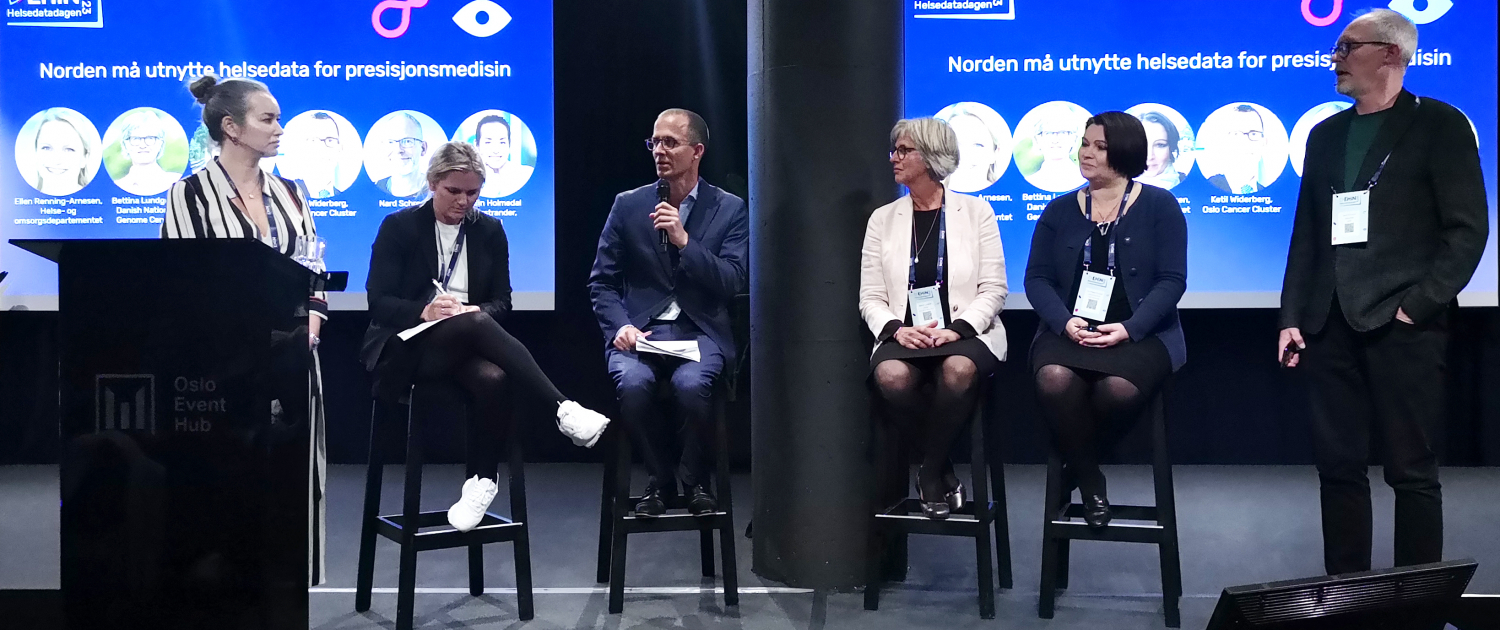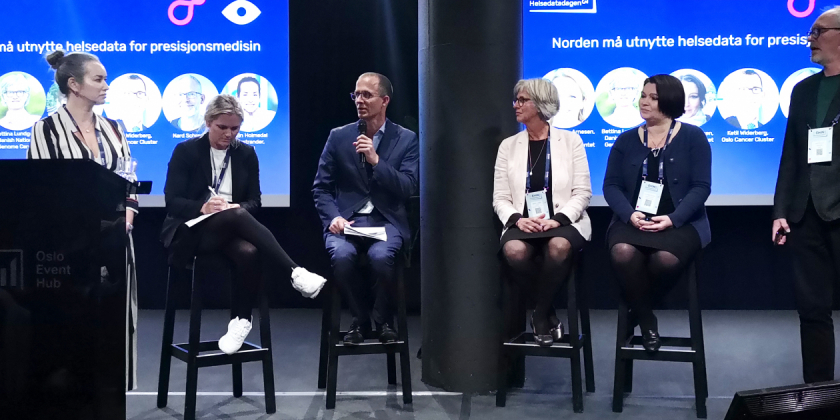Suggested a Nordic Health Data Space

How can the Nordics use health data to accelerate the development of cancer precision medicine?
”We have a foundation for health data that is among the best in the world.”
State Secretary Ellen Rønning-Arnesen from the Ministry of Health and Care Services presented the government’s work with health data at an EHiN meeting earlier this month.
“Our main task now is to make Norwegian health data even more available for research. We have a good starting point for this with good systems and high trust from the population that the data will be used safely and securely,” commented Rønning-Arnesen.
More targeted treatments
Ketil Widerberg, general manager of Oslo Cancer Cluster, presented an idea to the government’s vision, inspired by the EU initiative European Health Data Space:
“The Nordics can become a test bed for precision medicine, we can create a Nordic Health Data Space and do regulatory innovation. The old way of documenting the effect of treatments doesn’t work, especially in cancer. The patient groups are so small that we can’t use control arms the same way as before.”
Widerberg mentioned the national clinical study IMPRESS-Norway as an example. By using advanced molecular diagnostics, they have identified targeted treatments for cancer patients with no other options left.
“Health data should be used as documentation for faster approval of new medicines. Norway and the Nordics can lead the way here in regulatory innovation. Let’s create a Nordic Health Data Space to solve this challenge now!” Widerberg suggested.
Potential of genome data
Denmark is already using health data for clinical research and patient treatment. The Danish National Genome Center work with the implementation of whole genome sequencing in patient treatment, collecting and storing Danish genome data, making genome data accessible for clinicians, researchers and patients, and promoting the development of personalised medicine in Denmark.
“Genetic data are important and should be used when sensible, especially for research, development of new medicine and patient treatment. We are still operating too much from a one-size-fits-all. When it comes to cancer, the Nordic countries cooperate well together,” commented Bettina Lundgren, director at Danish National Genome Center.
The Norwegian Institute of Public Health also has excellent experience with making use of health data.
“Through the pandemic, we demonstrated that we could get quick access to data. We got data in almost real-time and at quite a low cost. We also need to lift the Norwegian population-based cohorts as a valuable source. We can use them to analyse the side effects of vaccines and the genetic risk of developing disease. We can hope for a future personalized vaccine strategy,” said Gun Peggy Strømstad Knudsen, deputy director general of the Norwegian Institute of Public Health.
Want to learn more?
EHiN (E-Health in Norway) has been an annual conference for almost a decade and arranges meetings throughout the year. Here are some of the upcoming events:
- 31 May – Helsesikkerhetsdagen
- 1-2 June – Plattformdagene
- 15-17 August – Arendalsuka
- 7-8 November – EHiN 2023
The post Suggested a Nordic Health Data Space first appeared on Oslo Cancer Cluster.





